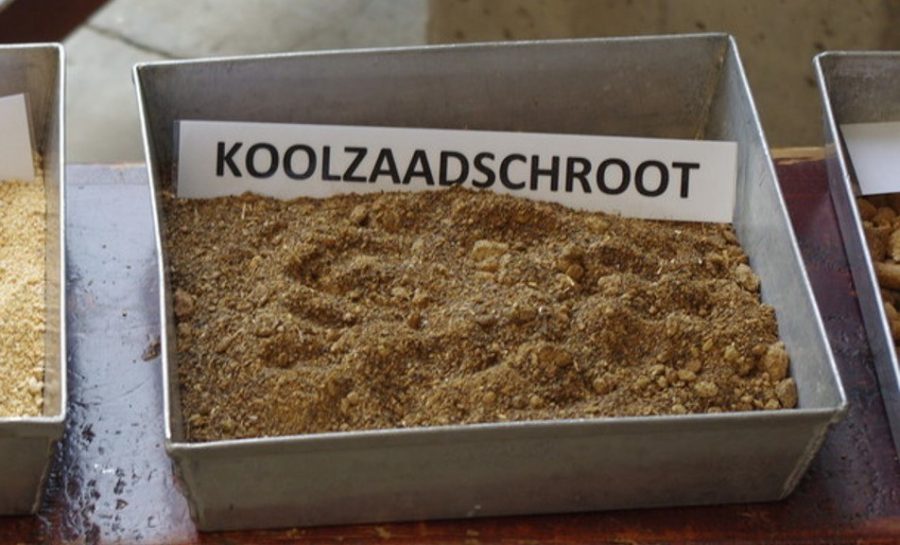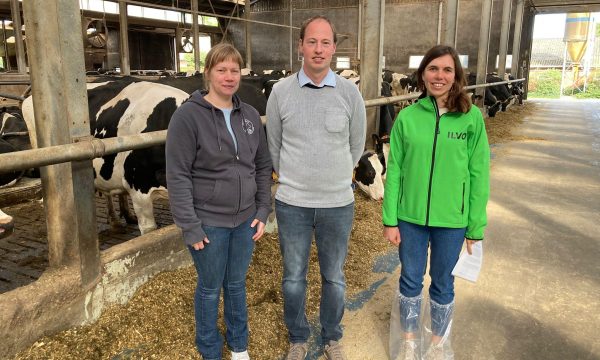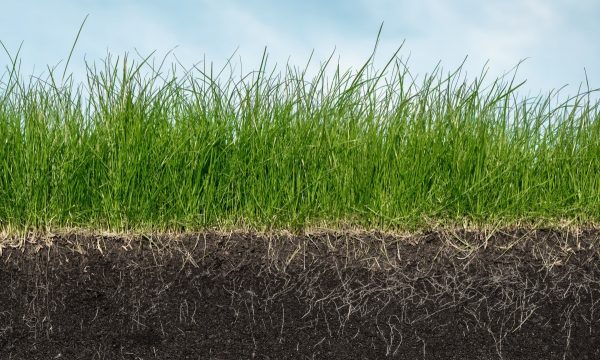Project news Beer draff, rapeseed meal and seaweed for methane reduction in dairy cattle
LA project HappyCliMi tests the application of rapeseed meal and draff in feed rations for dairy cattle in practice, and investigates the underlying mechanism. In the project, other new raw materials and by-products, all available in Flanders, are screened in vitro for their potential methane-reducing capacity in dairy cattle. Under study are algae, insects, microbial protein and by-products from viticulture or leek cultivation.

Flemish dairy farmers working under the Covenant for Enteric Emissions from Cattle are faced with the task of significantly reducing their enteric methane emissions by 2030. If they want to avoid a drastic reduction of livestock, they should preferably be able to implement feed-based mitigation measures. When dairy cows have rapeseed meal (and beer draff) mixed into their rations, their enteric methane emissions (emission of methane from the maw, during rumination or burping) decrease. This phenomenon is well known, but so far the fundamental processes behind it are not clear. The LA project HAPPYCLIMI, with Flanders' Food as coordinator, wants to unravel the working mechanism in the short term, so that this mitigation strategy can perhaps be made more widely applicable to dairy farmers. The question is then to what extent methane reduction is possible with even more, different basic rations and/or other fermented (grain) by-products, based on the same mechanisms in the animal's digestion. In addition, the project screens in vitro the potential of new feed raw materials for their methane-reducing capacity, so that these can also be used in the dairy industry in the medium and long term.
In vitro screening of the potential of feed materials and additives for their ability to reduce methane production in the rumen involves 60 new feed components. We use the same methodology to substantiate the already proven-working feed strategies from the past research project SMART milking. Of 2 methane reducing feed strategies we measure, on 4 dairy farms, the actual enteric methane emission. We are developing a protocol with which methane-reducing feed strategies can be efficiently and effectively tested in practice. We make the link with the ongoing research project KLIMREK (in which a convenient science-based tool is built that allows individual farms to perform their own climate scan and discover the most efficient climate improvement measures).
Through the research results from HAPPYCLIMI, dairy farmers will get a clear guide on how to reduce methane, for example, with rapeseed meal and fermented grain by-products. Furthermore, they will find out to what extent their (already fed) side streams have the potential to be validated as methane reducing additive or component.
Join in!
(In Dutch only) HappyCliMi zoekt 4 melkveehouders die tussen november 2021 en oktober 2023 twee voederstrategieën op hun bedrijf in de praktijk laten brengen voor een totale tijdsduur van ongeveer 6 maand.


